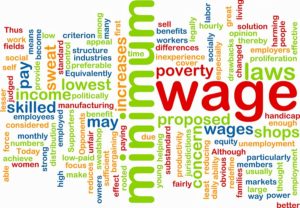
The fight against economic slavery, income inequality and the need to lift a good percentage of workers out of the poverty line had been in the forefront of the organized labour struggle and leading organizations such as the League of Nation which last organized the International Convention against slavery in 1926 and later supported by the convening of the Global Minimum Wage Convention championed by the International Labour Organization (ILO) in 1928 and other subsequent conventions. While it was practically impossible to have a Global Minimum Wage, countries of the world through legal instruments, collective bargaining, Treaties, and Conventions have adopted and embraced the idea of a national minimum wage.
Going by conventions and practices, we noticed that the national wage system is divided into two which have become very popular. The first is the PROGRESSIVE MINIMUM WAGE and the second is THE LIVING WAGE SYSTEM calculated based on the median income in countries and was first presented in 1919.
However, the Progressive minimum wage seems to enjoy currency in most countries of the world and Nigeria in particular. The progressive minimum wage allows for the government using a TRIPARTITE arrangement to arrive at a SINGLE Minimum wage for an agreed time frame (National Minimum Wage (Bill) Act 2019) recognizes five (5) years review duration.
WHAT IS A MINIMUM WAGE?
A national minimum wage is the mandatory and statutory minimum entry-level wage paid by employers of labour in a country (both public and private sector employers), exclusive of all deductions except when such deductions are required by law, agreed by the workers and approved by the regulatory bodies in charge of labour and employment matters, in the case of Nigeria the Minister of Labour and Productivity.
It is instructive to note that there cannot be more than one figure or a single national minimum wage, hence the proposal by the National Council of State of Nigeria (January 2019) for N 27,000 and the statement by the Minister of Labour Dr. Chris Ngigi, which states, that “ However, the Federal Government, based on the principle of ability to pay, augmented their own N 27,000 without putting workers through a protracted negotiation to N 30, 000 which means that the lowest paid worker in the Federal Public Service GL, Step 1 would earn N 30,000 minimum wage” is an abnormality and an estrangement to the principle of a national minimum wage.
Whilst the concept of the ability to pay is a key criterion in wage determination, the standard practice is to have a harmonized wage position in the course of its determination and once there is an agreement, signed into law by the President, employers of labour who falls within the recommended criteria are obligated to pay.
WHO IS ENTITLED TO A MINIMUM WAGE?
Section 2 (1) of the National Minimum Wage Act granted some exemptions which clearly identifies those categories of employees who cannot get or qualified for a minimum wage. The sections states as follows:
- The provisions of subsection 1 of section 1 shall not apply to:
- An establishment in which less than 25 workers are employed
- An establishment in which workers are employed on a part-time basis
- An establishment at which workers are paid on commission or on a piece rate basis
- Workers in seasonal employment such as agriculture
- Any person employed in a vessel or aircraft to which the laws regulating merchant shipping or civil aviation apply.
From the above, it means that if you are in paid employment and does not fail into any of the classifications above you are entitled to a minimum wage whether you are employed by the government or a private organization.
Click the link to continue to YOUR RIGHT TO DEMAND FOR A MINIMUM WAGE




 Copyright © Kayode Ibukunoluwa-Micah
Copyright © Kayode Ibukunoluwa-Micah
One Comment on “UNDERSTANDING YOUR RIGHT TO A MINIMUM WAGE”